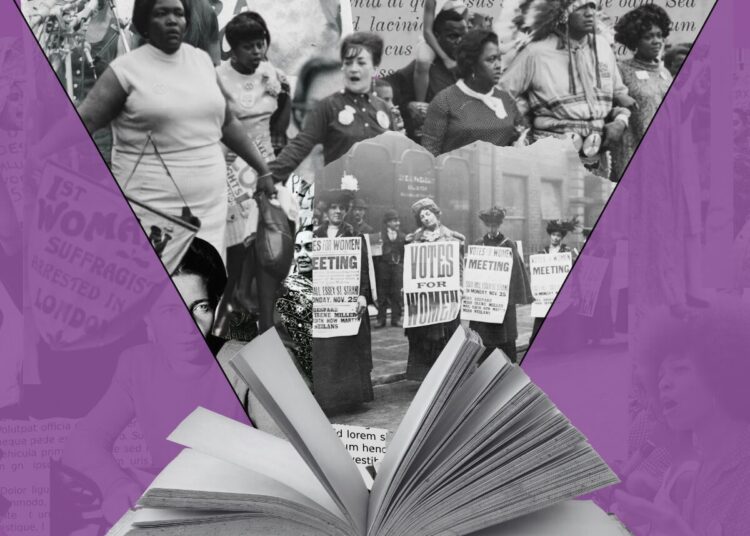If you ask most people why they are a feminist or why they relate to feminism, it is probably unlikely that they will first quote a feminist theory. Maybe they once read a poem or feminist manifesto that helped voice or explain an experience they had, but the truth is that most of us come into feminism because we have experienced something that didn’t sit right with us. We have been catcalled or assaulted, spoken over and passed over for an opportunity, barred from an experience or left out of a conversation we should have been a part of. It often starts as a sense; a feeling in our body that tells us we have just experienced an injustice.
If we can sense this injustice and know innately that it is wrong, shouldn’t that be enough? Surely, we don’t need a theory to tell us that women are people, too. And yet…
The term ‘sexual harassment’ was only coined in the 1970s. Of course, sexual harassment existed long before then. And, although we now have a term to name it, sexual harassment sadly continues. But, the emergence of the term did something important: it provided the language to describe and acknowledge an experience that was quite universal and simultaneously dismissed, hidden and taken advantage of. Those who experienced harassment knew it felt wrong, but they couldn’t name it; the lack of language, discourse and understanding became an injustice in itself. If we cannot name the injustice, the power dynamic at play, and the exploitation resulting from it, we cannot begin to recognise and address it. If we do not examine how this injustice came to be, how do we disrupt it?

This is why we need feminist theory: to name the injustices disproportionately affecting women and those of marginalised genders, and to get to the root of how unequal, oppressive and unjust gender relations are constructed, sustained and reproduced. The value of theory comes from its explanatory power. Theory is able to deconstruct and examine how something came to be and why. Through feminist theory, we learn how distorted gender relations have been explained and justified, and how they can be challenged.
What is feminist theory, though?
Feminist theories are critical analyses of society that generally focus on gendered systems of oppression and inequality. Through feminist theory, we can achieve a greater understanding of the socialised position of gender, and examine to what extent dominant, patriarchal ideologies are created, reproduced or resisted through the process of recounting our experiences.
While there is not one unified feminist theory, there are certain common ideas that form the foundation of most feminist theories. For example, feminist theories share the idea that gender is not natural, but rather a social and cultural construction that is continually reproduced through dominant cultural narratives. Most feminist theories also do not consider gender in isolation but as intersecting with other social identities such as race, ethnicity, class, caste, sexual orientation, and dis/ability.
Feminist theories also provide a framework for thinking about and articulating how the construction of gender shapes, moulds, and constrains bodies, and how gender binds us to particular roles, expectations, behaviours, and socially ‘ideal’ ways of living. The patriarchy is desperate to categorise, organise and put our identities into neat boxes. Feminist theories have played a hugely important role in challenging the binary and asking us to look beyond it; we deserve more than to be narrowly defined by fixed binary categories.
Who are feminist theories for?
Feminist theory aims to critique the structures which privilege certain identities over others to transform all of our lives meaningfully.
Feminism is not just for women, and for the most part, feminist theory is not concerned with blindly hating men. Rather, feminist theories interrogate how systems of power create pressure for all genders to conform to rigid norms and recognise how patriarchal structures harm us all.

Those whose gender does not align with the sex they were assigned at birth, including non-binary and trans folk, have been historically excluded from participating in the feminist movement. Feminist theory, however, can and should be a site where this exclusion is challenged. Some feminist theories focus solely on the specific feminist experiences and identities of those who have historically been excluded from the movement.
As part of this effort, many feminist theories also ask us to acknowledge the exclusionary history of the liberal feminist movement and the power imbalances within the movement. Who has been represented and allowed to lead in the feminist movement of the past 200 years, and at whose expense?
Feminist theory: translating a feeling into action
We don’t need feminist theories to help clue us in that something in our society is very wrong. But feminist theory can not only validate that sense that we have but also help us shift our individual experiences into sustaining a collective movement.
We hope that this page can be a starting point for all feminists, to spark or deepen this shift. We hope to provide concepts, tools, and language to understand yourself and your experiences better. It is through the framework of feminist theory that we begin to dig further into the particular contexts that enable unequal power relations to take root and persist. Thinking and acting together enables a radical reimagining of the status quo. This is how the feminist movement grows and stays strong.












